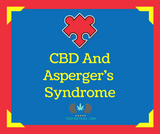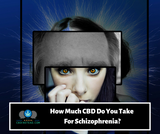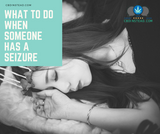Dementia can come early on, but many people begin experiencing it with old age. It can be a scary time forgetting things, having a muddled mind and feeling alone. That is why we have to do our best and be there for our loved ones during this time.
Though there is evidence that cannabis helps with dementia, it is becoming common knowledge that medication alone cannot cure many mental and physical ailments. As a caretaker or someone who has a loved one with dementia, there is plenty you can do to help them through this hard time.
Know about the disease
The first thing you can do to help anyone going through something is to learn about what it is they are dealing with. This gives you more understanding, giving you the ability to be the person who helps them feel less alone. They can talk to you about it, and you will know exactly what they mean. This also will grant you patience, which is something that is necessary when aiding someone battling a disease.

What Is Dementia
Dementia comes about when the brain is damaged, which can happen through strokes and diseases like Alzheimer’s. Everyone experiences dementia a little different because it depends on what part of the brain is damaged. Symptoms can include memory loss, behavioral change, as well as losing eyesight and mobility. Many diseases cannot be reversed, and the best you can do is halt the process. The best way to tackle your patients or loved one’s dementia is to understand what disease is causing it.
Different forms of dementia
While one person may lose their motor functions, another might lose their long-term memory. The best way to fully connect with your patient or loved one is to understand what kind of dementia they are going through.
Alzheimer’s Disease
This is the most common type of dementia, between 60-80% of dementia cases stem from Alzheimer’s. This disease is a degenerative neurological disease, meaning it will get worse over time. There is no cure for Alzheimer’s, but with treatment, many symptoms can be treated.
Symptoms
- Apathy
- Depression
- Poor short-term memory
- Impaired communication
- Poor judgement
- Disorientation
- Confusion
- Behavior changes
- Difficulty speaking and swallowing

Vascular Dementia
Vascular Dementia is when the brain starts taking damage from low blood flow. This type of dementia can get worse over time through multiple strokes or other conditions that block or damage the blood flow.
Symptoms
- Disorientation
- Impaired social skills
- Confusion
- Sudden headaches
- Loss of vision
- Trouble understanding speech
- Trouble speaking
- Difficulty walking
- Impaired planning and judgment
- Uncontrollable laughing or crying
- Unable to pay attention
Dementia with Lewy Bodies
Lewy Bodies dementia is a progressive disease that is caused by a buildup of proteins in your brain. The same proteins that cause Parkinson’s, and there are also tangles, and plaques linked with Alzheimer’s. This means that the patient may suffer the worst of both worlds.
Symptoms
- Visual hallucinations
- Tremors
- Depression
- Dizziness
- Poor attention span
- Constipation
- Sweating
- Irregular blood pressure
- Trouble sleeping
- Rigid muscles
- Disorganized speech
- Long naps during the day
- Memory loss
Parkinson’s Disease
Parkinson’s mainly affects the body, but it also can cause dementia. When a person’s cognition is so impaired, they can’t carry on regular everyday activities, that is when it begins to be classified as dementia. It’s been estimated that at least 50% of Parkinson’s patients have at least a mild cognitive impairment.
Symptoms
- Fatigue
- Stiff muscles
- Dizziness
- Nightmares
- Trouble sleeping except through the day
- Anxiety
- Apathy
- Depression
- Distorted sense of smell
- Unable to fully control bladder
- Confusion
- Amnesia
- Reduced facial expressions
- Constipation
- Drooling
- Difficulty swallowing
- Weight loss
- Small handwriting
Frontotemporal Dementia (FTD)
This is a group of disorders that cause dementia from the overproduced proteins tau and TDP43. These disorders affect the frontal and temporal areas of the brain, which is why things like memory and speech are what suffers. There are three different subtypes of this dementia.
Behavior variant frontotemporal dementia
When the brain loses control over judgment, empathy, foresight, and other cognitive abilities, it will cause the patient’s personality to change. It can happen to people as young as 20, but generally begins to show itself in adults from 50 to 60.
Primary progressive aphasia
This type of degeneration affects the speech, writing, language, and comprehension abilities. This often comes upon adults in their mid-life, which is before 65. They may lose the ability to understand or formulate sentences, or they can just be incredibly hesitant when they speak, and the grammar is incorrect.
Disturbance of Motor Function
Three illnesses do not show the same symptoms as the behavior variant and the primary progressive aphasia. However, they do still bring changes in motor or muscle functions.
Amyotrophic lateral sclerosis (ALS), causes muscle weakness or wasting.
Corticobasal syndrome, causing limbs to become uncoordinated or stiff.
Progressive supranuclear palsy (PSP), causing difficulty in walking, change in posture, muscle movements, and can even affect eye movements.
The Difference Between Alzheimer’s and Frontotemporal Degeneration
It may be tricky figuring out which one your loved one has because the symptoms are so similar. They both change behaviors and memory loss. But there are a few differences in when symptoms start to occur in someone's life, and there are some symptoms that are extremely common for one disease but uncommon for the other.
Alzheimer’s patients hallucinate and have delusions, that is a symptom that is actually not very common for someone with FTD. An Alzheimer patient is also easier to understand when their speech begins to fade because they generally don’t have as much difficulty as someone with FTD.
Behavioral changes are frequent in both diseases. However, in FTD, they begin to appear a lot earlier on in the condition than Alzheimer’s. However, Alzheimer’s patients start to lose their memory earlier on in the illness than FTD patients.

Creutzfeldt-Jakob disease
Luckily, this disease only affects one in one million people per year. This disease is as haunting as it is deadly. It creeps up late in life, and then the effects worsen at a rapid pace. About 90% of patients with Creutzfeldt-Jakob Disease will die within a year of symptoms starting to show. And 85% of the people with the disease showed no risk factors before symptoms.
Symptoms
- Personality change
- Impaired judgement
- Memory loss
- Impaired vision
- Insomnia
- Depression
- Unusual sensations
- Involuntary muscle jerks
- Lose sight completely
- Lose mobility functions
Normal pressure hydrocephalus
When excess cerebrospinal fluid builds up in the brain’s ventricle, an individual can experience issues in their cognitive thought structure, as well as mobility and bladder control. This is called Normal Pressure Hydrocephalus. This is a particularly tricky disease because doctors say the symptoms are so prevalent in other brain disorders, so they don’t even have a reliable statistic of how many people have it.
Symptoms
- Difficulty walking
- Difficulty in decision making
- Slower thought process
- Inability to concentrate
- Changes in behavior or personality
- Loss of bladder control

Huntington’s Disease
This is a fatal disorder that is also genetic. Parents with Huntington’s Disease are thought to have a 50/50 chance of passing it down to their children. What this disease does is break down the cells in the brain, which deteriorates an individuals physical and mental abilities. Some would say that this disease is like having Parkinson’s, ALS, and Alzheimer’s all at the same time.
Symptoms
- Depression
- Mood swings
- Personality or behavior change
- Impaired judgement
- Memory loss
- Involuntary movements
- Weight loss
- Difficulty speaking
- Difficulty swallowing
Wernicke-Korsakoff Syndrome
This is a brain disorder that is caused by the lack of vitamin B-1 and is the most common in alcoholics. It is actually two diseases happening at the same time. The first is called Wernicke Disease. There is bleeding that occurs in the brain, causing damage to systems involving vision, balance, and coordination. If this disease is treated quickly, the second round could be eliminated. If not, symptoms of Korsakoff Psychosis will begin to show. This is a disorder that happens after severe brain damage and causes memory loss. Which is why we find these two with our dementia diseases.
Symptoms of Wernicke
- Double vision
- Difficulty keeping upper eyelid open
- Confused mental state
- Loss of muscle coordination
- Involuntary eye movements
Symptoms of Korsakoff
- Amnesia specifically for events that happened after the Wernicke disease
- Difficulty comprehending
- Hallucinations
- Trouble putting words together to make comprehensible sentences
- Confabulation
Mixed Dementia
This type of dementia is when the patient is showing abnormal symptoms from multiple types of dementia. The symptoms depend on what brain damage has occurred, which is why it is so good to know the symptoms of the main types of dementia. It is always good practice to speak to a professional as soon as you are suspicious of symptoms, it could potentially save your loved one’s life.
Risk Factors Of Dementia
Aging
Aging is the most common factor in the diseases that cause dementia. The majority of people with dementia are above the age of 65. This isn’t something that can be prevented, but living a healthy lifestyle can significantly decrease the risks of many of the diseases that cause dementia.

Family History
When knowing the family history includes some nasty baggage that can lead to disease, an extra effort can be made in preventing that targeted illness. There are two different types of classifications for the genes that show probable sickness, risk gene and deterministic gene. Risk genes show that you and your lineage may develop an illness, while deterministic genes are a sure bet that you are going to develop the hereditary disorder.
Gender
Women are significantly more likely to develop Alzheimer’s Disease than men. However, men are slightly more likely to develop dementia related to stroke and heart disease. Other than these specific dementia causes, the gender doesn’t really affect the risk in most cases of dementia.
Cardiovascular Factors
Damage to the heart, blood flow, or arteries can have an impact on someone’s chances of developing dementia. This includes type 2 diabetes, obesity, high cholesterol, and high blood pressure. Each of these are avoidable through healthy lifestyle choices and a good environment.
Depression
Depression is not only known as a symptom of dementia, but it can also actually cause dementia as well. Unfortunately, they aren’t sure why depression causes dementia. They just know that an average of 39% of patients with depression eventually begin to show the signs of dementia. They also know that half of the patients with late on-set depression have cognitive impairment. What we do know for sure, is that getting your patient or loved one the mental health care they need can potentially save their life.
Learn How to Strengthen Memory
The most common symptom of dementia is memory loss. There is no guarantee that engaging memory boosting activities will prevent dementia, it has certainly shown promise by improving cognitive skills of many patients. By strengthening the body and mind, many symptoms can become less severe.

Brain Training Apps
Some older adults have no problem using and understanding technology, and even welcome it. By using brain training apps, they can have fun while boosting their cognitive skills. Favorite apps include Luminosity, Fit Brains, and Happify.
Arts And Crafts
Art has been proven to help patients with dementia with its ability to boost cognitive skills as well as self-esteem. You can garden in or out of the house with a windowsill garden, choosing plants that don’t need extensive care. This will give them a sense of fulfillment, and something that can progressively become easy to remember.
Making a photo album with old pictures of your patient or loved one’s family is a great way to have a loving reminder. It’s important to remember not to push too hard when reminding dementia patients of the past considering not being able to remember is very frustrating.
Sing Songs
Music therapy has shown significant improvement in enhancing cognition. It is uplifting and enjoyable, which is reason enough to indulge in some savory tunes. But it also helps the brain make connections, becoming stronger, helping it function more efficiently. Your mind comes alive with music, which is especially helpful for dementia patients.

Help Make Predictable Schedules and Routines
By having a regular schedule, it helps the brain practice its long-term memory while dementia has been trying to take it over. By continually exercising the brain, it will the individual learn how to retain long-term information. This can be something as small as reading the paper to them every Sunday like they are used to, or things like scheduled meal times and exercise.
Help Keep Them Accountable With Proper Nutrition
A poor diet can do a lot of harm to a patient with dementia. It is essential to eat foods that encourage healthy blood flow and brain activity. Foods like vegetables, nuts, and berries are great and easy to eat for those who have a small appetite.

Exercise Is Important
Not only does exercise promote a healthy body that can reduce cardiovascular disease, but it also helps boost cognition. Exercise can reduce mental decline as well as improve memory. Many of the conditions that cause dementia also interfere with mobility. By doing moderate amounts of physical activity, it can help build strength. This helps reduce falls, improves general body health and improves self-confidence.
Be Patient With Your Patient
Your patient or loved one is going through a lot, and they need you to help make their life easier. Their mood may change, they may become unlikable, but remember that is the disease. Try not to push their past selves on them and accept and love who they are. They are most likely very emotional, so avoiding fights and arguing will really help their mental health. And this is when the most important tip of all comes in for loved ones and caretakers. Remember You.
Don’t Forget To Take Care Of Yourself
You aren’t going to be very helpful when you are stressed out or pushed to your limit. Understand it is okay that you need a break sometimes, even if you feel guilty. You are doing your best, and you have to be at your best to continue. Your mental health is just as important, so be sure to take care of that first.





















